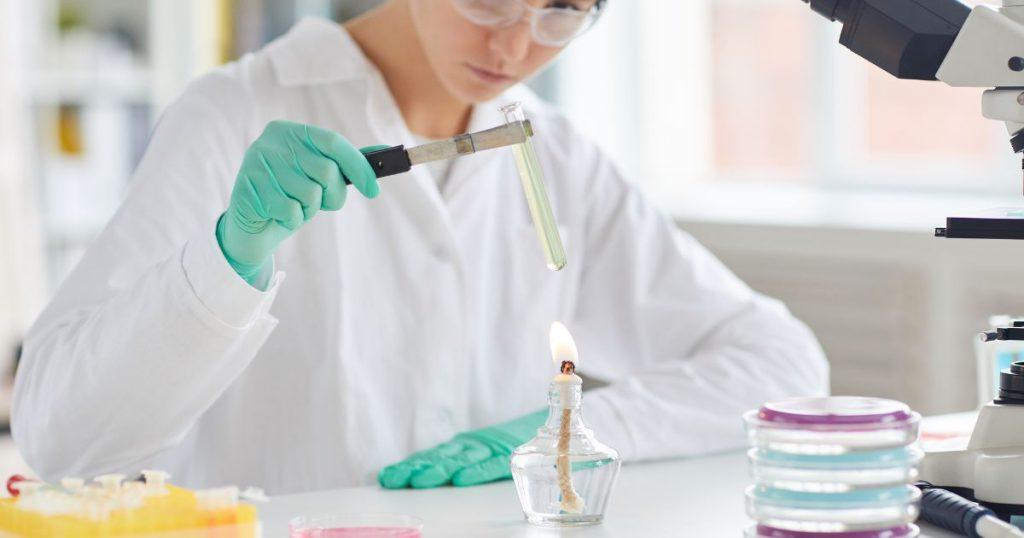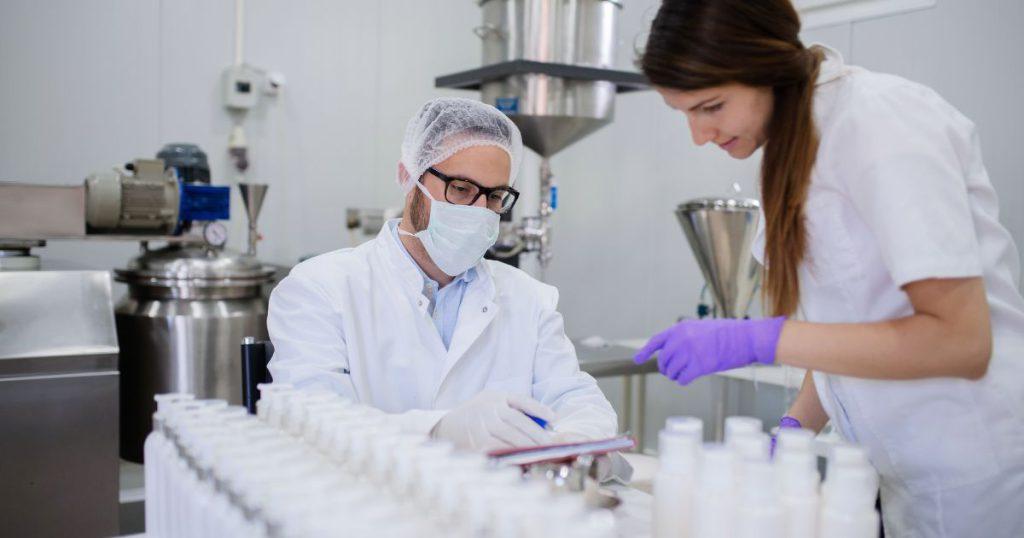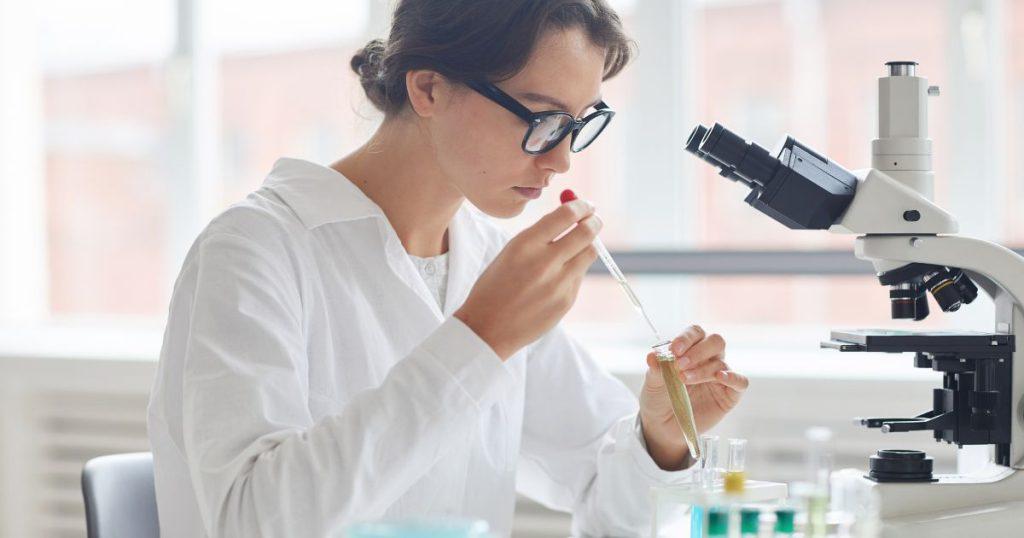The Biochemical Basis of Genetic Diseases
Table of Contents
Biochemical Basis of Genetic Diseases
| Disease | Biochemical Basis | Symptoms |
|---|---|---|
| Diabetes Mellitus | Insufficient insulin production or insulin resistance leading to high blood glucose levels | Frequent urination, increased thirst, unexplained weight loss |
| Cardiovascular Disease | High levels of LDL cholesterol leading to plaque buildup in arteries | Chest pain, shortness of breath, fatigue |
| Atherosclerosis | High levels of LDL cholesterol leading to plaque buildup in arteries | Chest pain, numbness or weakness in limbs, slurred speech |
| Cancer | Uncontrolled cell growth due to disruptions in normal cell cycle regulation | Lump or abnormal bleeding, unexplained weight loss, fatigue |
| Metabolic Disorders (e.g., Obesity) | Disruptions in normal metabolic processes leading to excess body fat | Excess body weight, fatigue, joint pain |
| Neurodegenerative Diseases (e.g., Alzheimer’s) | Progressive loss of nerve cells in the brain | Memory loss, confusion, difficulty speaking |
Ever wondered why some diseases run in families? The answer lies in the ‘Biochemical basis of genetic diseases.’ Dive into this article to unravel the mysteries of our genes, explore the biochemical culprits behind common genetic diseases, and discover how our DNA shapes our health. Stay tuned!

Introduction
In the intricate world of biochemistry, the secrets to many genetic diseases lie hidden, waiting to be unraveled. These diseases, often passed down through generations, are the result of alterations in our genetic material. But how do these genetic changes translate into the physical manifestations of disease? The answer lies in biochemistry, the study of the chemical substances and vital processes occurring within living organisms. In this article, we’ll explore the biochemical basis of several common genetic diseases, shedding light on the complex interplay between our genes, our biochemistry, and our health.
Understanding the biochemical basis of genetic diseases can help us develop more effective treatments and therapies. By understanding the molecular mechanisms that cause these diseases, we can target these processes with drugs or other interventions.
Common Biochemical Tests and Their Uses
| Biochemical Test | Use |
|---|---|
| Blood Glucose Test | Diagnose and monitor diabetes |
| Cholesterol Test | Assess risk of cardiovascular disease |
| Liver Function Test | Evaluate liver health |
| Complete Blood Count | Evaluate overall health, detect disorders |
Understanding Biochemistry and Its Role in Genetic Diseases
Before we delve into the specifics, let’s take a moment to understand the fundamental role of biochemistry in our bodies and how it relates to genetic diseases. Biochemistry is the bridge that connects our genes to our health. It’s the science that explains how our bodies convert food into energy, how our cells grow and divide, and how our immune system fights off invaders. When our biochemistry goes awry, it can lead to a host of health problems, including genetic diseases. These diseases are often the result of biochemical processes that have been disrupted by genetic mutations.
Key Biochemical Processes and Their Functions
| Biochemical Process | Function |
|---|---|
| Metabolism | Converts food into energy, eliminates waste products |
| DNA Replication | Copies genetic information for cell division |
| Gene Expression | Translates genetic information into proteins |
| Protein Synthesis | Builds proteins from amino acids |
Exploring the Biochemical Basis of Diabetes Mellitus
One of the most common genetic diseases worldwide, Diabetes Mellitus, offers a fascinating glimpse into how biochemical processes can go awry. This disease is characterized by high blood glucose levels, a condition known as hyperglycemia. But what causes this increase in blood glucose? The answer lies in insulin, a hormone produced by the pancreas that regulates blood glucose levels. In people with diabetes, either the pancreas does not produce enough insulin, or the body’s cells become resistant to its effects, leading to a buildup of glucose in the blood.

Insulin and Blood Glucose: A Delicate Balance
The dance between insulin and blood glucose is a delicate one, and when it falls out of sync, it can lead to serious health complications. Insulin acts as a key, unlocking our cells to allow glucose to enter and be used for energy. When this process is disrupted, as in diabetes, it can lead to a host of health problems, from fatigue and frequent urination to more serious complications like heart disease and kidney damage. Understanding the biochemical basis of this disease can help researchers develop more effective treatments and potentially even a cure.
Examples of Genetic Diseases with a Biochemical Basis
- Diabetes Mellitus
- Cardiovascular Disease
- Atherosclerosis
- Cancer
- Metabolic Disorders (e.g., Obesity)
- Neurodegenerative Diseases (e.g., Alzheimer’s)
Cardiovascular Diseases: A Biochemical Perspective
Cardiovascular diseases, often linked to lifestyle factors, also have a deep-rooted connection to our biochemistry. These diseases, which include conditions like heart disease and stroke, are often the result of a buildup of plaque in the arteries, a condition known as atherosclerosis. But what causes this plaque buildup? The answer lies in our biochemistry. High levels of certain types of cholesterol, particularly low-density lipoprotein (LDL), can lead to the formation of plaque in the arteries, increasing the risk of cardiovascular disease.
Atherosclerosis: A Silent Threat
Atherosclerosis, a condition often associated with cardiovascular disease, is a silent threat that begins at the molecular level. This disease is characterized by the buildup of plaque in the arteries, which can restrict blood flow and lead to heart attacks and strokes. But what causes this plaque buildup? The answer lies in our biochemistry. High levels of certain types of cholesterol, particularly low-density lipoprotein (LDL), can lead to the formation of plaque in the arteries. Understanding the biochemical basis of atherosclerosis can help researchers develop more effective treatments and potentially even a cure.

Cancer: A Biochemical Anomaly
Cancer, one of the most feared diseases today, is essentially a biochemical anomaly, a cellular process gone rogue. At its core, cancer is the result of uncontrolled cell growth, a process that is normally tightly regulated by our biochemistry. When this regulation fails, cells can grow and divide uncontrollably, forming a tumor. Understanding the biochemical basis of cancer can help researchers develop more effective treatments and potentially even a cure.
Metabolic Disorders: When Biochemistry Misfires
Metabolic disorders, such as obesity and insulin resistance, are prime examples of what happens when our body’s biochemistry misfires. These conditions are characterized by disruptions in the normal biochemical processes that convert food into energy. For example, in obesity, the body’s ability to regulate energy balance is disrupted, leading to an excess accumulation of body fat. Understanding the biochemical basis of these disorders can help researchers develop more effective treatments and potentially even a cure.
The Molecular Basis of Genetic Diseases
To truly understand the biochemical basis of genetic diseases, we need to delve into the molecular level, where gene expression, protein synthesis, and enzyme activity play crucial roles. These processes are all regulated by our biochemistry, and disruptions in these processes can lead to disease. For example, mutations in the genes that code for certain enzymes can lead to metabolic disorders, while mutations in the genes that regulate cell growth can lead to cancer.

Microorganisms and Genetic Diseases
Our bodies are a thriving ecosystem of microorganisms, and sometimes, these tiny inhabitants can trigger genetic diseases. For example, certain types of bacteria and viruses can integrate their genetic material into our own, disrupting normal biochemical processes and leading to disease. Understanding the biochemical interactions between our bodies and these microorganisms can help researchers develop more effective treatments and potentially even a cure.
Neurodegeneration: A Biochemical Puzzle
Neurodegenerative diseases, such as Alzheimer’s and Parkinson’s, present a complex biochemical puzzle that scientists are still trying to solve. These diseases are characterized by the progressive loss of nerve cells in the brain, a process that is tightly regulated by our biochemistry. When this regulation fails, nerve cells can die off, leading to the symptoms of neurodegenerative diseases. Understanding the biochemical basis of these diseases can help researchers develop more effective treatments and potentially even a cure.
Key Terms in Biochemistry
| Term | Definition |
|---|---|
| Enzyme | A protein that speeds up chemical reactions in the body |
| Hormone | A chemical messenger that regulates bodily functions |
| Metabolism | The chemical processes that convert food into energy |
| Gene | A segment of DNA that contains instructions for building a protein |
Biochemistry is the bridge that connects our genes to our health. It’s the science that explains how our bodies convert food into energy, how our cells grow and divide, and how our immune system fights off invaders.

Conclusion
As we journey through the biochemical landscape of genetic diseases, it becomes clear that understanding these complex processes is key to unlocking new treatments and therapies. From diabetes and cardiovascular disease to cancer and neurodegeneration, the biochemical basis of these conditions offers a wealth of opportunities for research and discovery. By delving into the intricate world of biochemistry, we can gain a deeper understanding of our health and the diseases that affect us, paving the way for a healthier future.
Disclaimer: This article is intended for informational purposes only and is not a substitute for professional medical advice, diagnosis, or treatment. Always seek the advice of your healthcare provider with any questions you may have regarding a medical condition.
For more insights into the world of biochemistry, feel free to explore the Biochemistry category on my blog. Also see my index page on Biochemistry
Also check out my other pages: Biochemical basis of autoimmune diseases
Frequently Asked Questions
What is the biochemical basis of diseases?
The biochemical basis of diseases refers to the molecular mechanisms and chemical processes that occur within our bodies and contribute to the development of diseases. This can include disruptions in normal metabolic processes, genetic mutations that affect protein function, or imbalances in biochemical pathways.
What is the biochemical basis of genetics?
The biochemical basis of genetics involves the study of the molecular structures and processes that underlie genetic phenomena, such as DNA replication, gene expression, and mutation. It’s the study of how genetic information is encoded, replicated, and expressed in cells.
What is the basis for biochemical tests done in diseases?
Biochemical tests are used to measure the levels of certain chemicals, enzymes, or other substances in the body that may be affected by disease. These tests can help diagnose diseases, monitor their progression, or assess the effectiveness of treatments.
What are examples of genetic basis of disease?
Many diseases have a genetic basis. For instance, cystic fibrosis is caused by a mutation in the CFTR gene, and Huntington’s disease is caused by a mutation in the HTT gene. Other diseases, like cancer and diabetes, can also have a genetic component, although they are often influenced by environmental factors as well.
What are the biological factors that cause disease?
Biological factors that can cause disease include genetic mutations, infections from bacteria or viruses, and imbalances in normal bodily functions, such as hormone levels or immune system activity. Lifestyle factors, like diet and exercise, can also influence these biological factors and contribute to disease.
What are the basic biochemical concepts?
Basic biochemical concepts include the structure and function of molecules found in living organisms, such as proteins, carbohydrates, lipids, and nucleic acids. It also involves understanding the chemical reactions and processes that occur within cells, such as metabolism, DNA replication, and protein synthesis.
Why is biochemical genetics important?
Biochemical genetics is important because it helps us understand how genes affect our biochemistry and how changes in our genes can lead to disease. This field of study can help us diagnose and treat genetic diseases, and it can also provide insights into how we can manipulate our biochemistry to improve our health.
How does understanding the biochemical basis of genetic diseases contribute to medicine?
Understanding the biochemical basis of genetic diseases can help us develop more effective treatments and therapies. By understanding the molecular mechanisms that cause these diseases, we can target these processes with drugs or other interventions. This can lead to more personalized and effective treatments for patients.
Further Reading
The biochemical basis of disease – PMC
Sean Schepers is a third-year Medical Technology student at Mahidol University with a passion for all things health and medicine. His journey into the world of medicine has led him to explore various fields. Sean's blog posts offer a unique perspective, combining his academic insights with personal experiences. When he's not studying or blogging, Sean enjoys keeping up with politics and planning his future career in medicine.
In addition to his studies, Sean serves as the chairman of the Rights, Liberties, and Welfare Committee, a role that reflects his commitment to advocacy and social justice. Beyond his academic pursuits, Sean offers tutoring services in English and Biology, further demonstrating his dedication to education and mentorship. His journey is one of continuous discovery, and he invites others to join him as he explores the dynamic and transformative world of medical technology.


